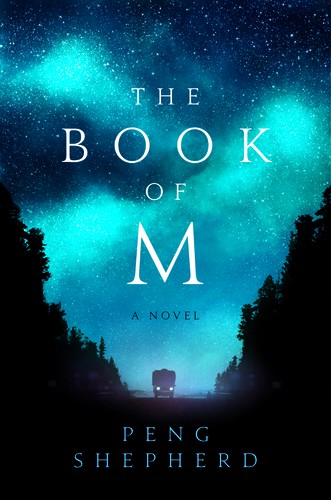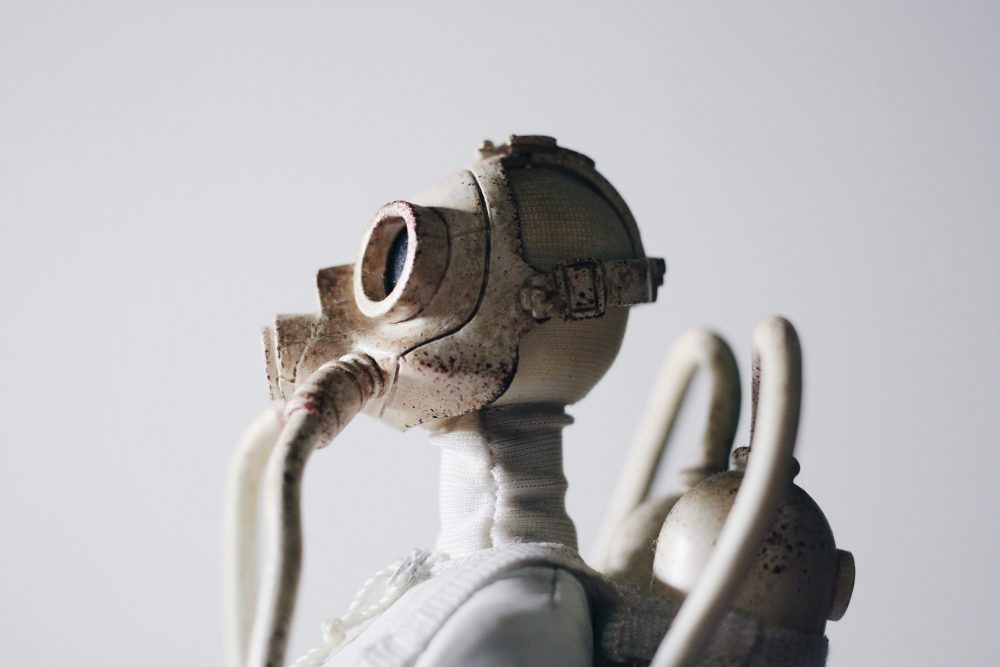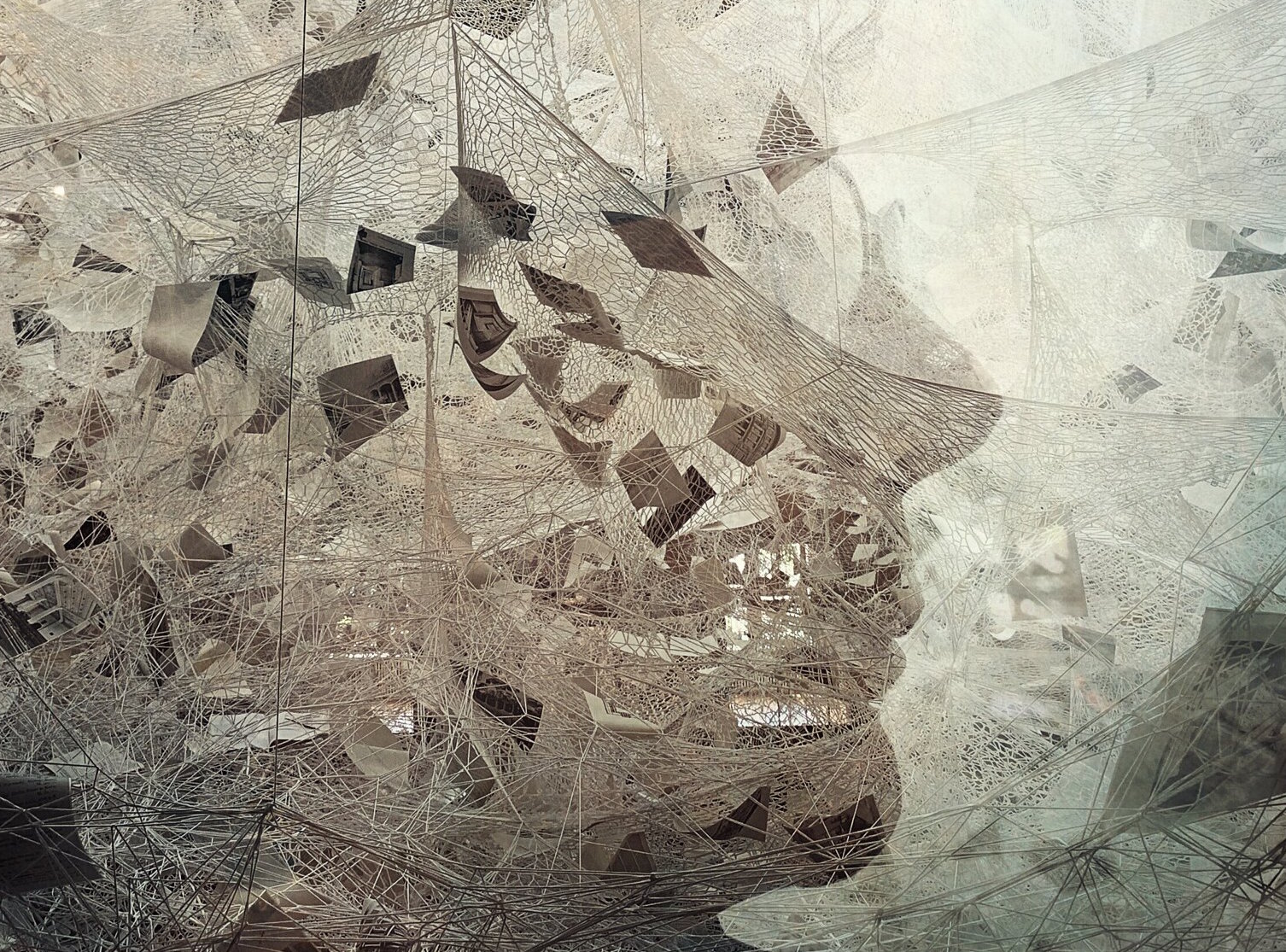Books & Culture
A Post-Apocalyptic Fantasy for the Post-Truth Era
Peng Shepherd’s “The Book of M” envisions a society where reality is malleable—and it’s more plausible than it sounds

Post-apocalyptic adventures play on modern anxieties over the complexity and fragility of our resources. If your urban existence is comfortable, it depends on an economy of supply networks and utilities beyond your control — well-stocked supermarkets, medical care, currency. The post-apocalyptic story works out how swiftly, easily, and dreadfully these will evaporate, often in lurid detail, and then what’ll that fancy degree get you? In The Book of M (2018), Peng Shepherd takes the form a step further: what if that precious social good we lose isn’t electricity or fresh food, but a simple agreement on reality?
The Book of M’s apocalypse is eerily absurdist. Worldwide, people start losing their shadows, and with their shadows, their memories gradually disappear. Not just personal memories, but also their understanding of how the world is — how to eat, what a gun does. This would be bad enough, but sometimes, when the shadowless forget, the world changes to match their subjective misunderstanding. The book opens with Ory, who has holed up with his wife, Max, in an abandoned hotel in the Northern Virginia woods; Max has just lost her shadow, and as Ory hunts, he discovers Max must have forgotten what a deer’s antlers are, and her imagination has imperfectly filled in the gap:
It had seemed like a deer, but now he could see that it was not. Almost, but not quite. Where its bony, branchlike antlers should have been, instead a pair of small brown wings sprouted from its forehead, mottled feathers spread in the same way horns might curve.
Once she loses her shadow, Max flees Ory so she won’t erase or misremember him into an abomination. Ory pursues her in the wild hope of resisting the curse, or at least, being faithful to the end. In nearby Washington, D.C., where crowds of shadowless have reconfigured reality, the result is a surreal chaos. A raging ogre called the Red King — “a living mountain,” with “a scarlet cloak of a hundred layers” and “armor made from whole, bent steel doors” — commands hordes of red-painted shadowless from out of the public library, while shadowed survivors barter desperately to save the books inside.
What if the precious social good we lose isn’t electricity or fresh food, but a simple agreement on reality?
Fantastical (and convoluted) as “the Forgetting” is, this all starts to feel uncannily familiar after a few pages. As New York Times critic Michiko Kakutani recently observed in The Death of Truth (2018), “ ‘surreal’ and ‘chaos’ have become two of those words invoked hourly by journalists trying to describe daily reality in America.” In today’s climate of “alternative facts” and political gaslighting, she writes, “a shared sense of reality is becoming elusive.”
Significant blocs of American society disagree on whether the planet is warming; whether the crime rate is historically low or high; and whether Hillary Clinton won the 2016 presidential election’s popular vote. (It is; it’s low; and she did.) Unlike religious beliefs or political ideologies, these matters feel like “facts,” in that they make claim to an objective truth that should be more or less verifiable. “One of the biggest challenges we have to our democracy,” President Obama has warned, “is the degree to which we do not share a common baseline of facts,” and instead “operate in completely different information universes.”
Kakutani’s book The Death of Truth: Notes on Falsehood in the Age of Trump sets out the dire state of truthful, rational discourse in today’s political climate, dominated as it is by Donald J. Trump, Vladimir Putin, and coordinated disinformation. (The quotation by Obama is one of many alarming “notes” that she collects and synthesizes.) Kakutani attributes this demise of objective truth to entertainment news, postmodernist theorists, and unscrupulous demagogues, among many other culture shifts.
But the Internet, she asserts, has given disinformation peddlers an unprecedented power to shape popular knowledge. With the Internet’s “democratized information,” false claims can spread widely, and incorrect opinions find support online; with recommendation engines in Google, Facebook, or YouTube that tailor content to users’ browsing history, people also tend to encounter the information, true or false, that matches their preconceptions. This means two web users — one liberal, one conservative — might, when they google “proof of climate change,” see diametrically opposite results that tend to reinforce their own views. “We are long past merely partisan filter bubbles,” Kakutani quotes Renée DiResta, “and well into the realm of siloed communities that experience their own reality, and operate with their own facts.”
The Book of M makes that proposition literal: reality itself gets democratized. During a supermarket panic, when one woman forgets what money is, everyone in the store finds their bills blank; when a Pune man forgets the local spice market, the whole market — its stalls, its shoppers, everything — vanishes. Ursula K. Le Guin’s 1971 novel The Lathe of Heaven imagined the chaos of one person’s power to revise reality, but The Book of M extrapolates to a world shredded by millions of overpowered imaginations.
The terror of M’s epidemic is not your standard post-apocalyptic depravity (cannibals, marauding gangs), but of being involuntarily subject to another person’s bad calls. Of knowing that you’re right, but it won’t make any difference. That’s an anxiety I feel daily.
The terror of M’s epidemic is not your standard post-apocalyptic depravity, but of being involuntarily subject to another person’s bad calls.
In The Book of M, when one survivor, Naz, reaches New York City, she discovers the Statue of Liberty has grown three sizes, come to life, and leveled most of the city like a 1950s kaiju. Whose bad dream was that? We never find out, but it’s easy to see how a handful of shadowless could mis-imagine Lady Liberty into something to be afraid of, with each mistake compounding the last. And it’s hard not to read in this a poetic echo of Trump’s engineered immigration paranoia. How many immigrant families, asylum-seekers, and citizens will be terrorized because of demonstrably false fears about the “migrant caravan”? How many women who watched Justice Kavanaugh’s confirmation hearings internalized the lesson that multiple witnesses’ evidence can’t overcome one man’s stubborn amnesia?
“It’s almost kind of beautiful,” Naz remarks of the monstrous Statue of Liberty. “Horrible, but beautiful.” Shepherd does extract an uncanny beauty from the chaos, reminiscent of Murakami’s absurdism or Garcia Márquez’s magical realism, like the wing-antlered deer that opens the novel, or a shotgun that fires a literal lightning-storm into a man’s chest. The beauty of these reality-revisions is important: we’re witnessing human imaginations overcoming nature, and it’s part of the danger that this is something we’ve always wanted to do. There’s an alluring order to manmade falsehoods, over the inhuman orderliness of truth. Kakutani quotes Borges, comparing the neat ideologies of Nazism and Marxism to a detailed fantasy world: “it is a labyrinth plotted by men, a labyrinth destined to be deciphered by men.” Lying is agency; so is believing, while knowing better. And even an awful agency, at an awful cost, is more attractive than powerlessness.
Truth isn’t as easy as it sounds. How do we figure out, or even define, “objective reality,” if we can only ever be a bunch of fallible subjective brains? According to American pragmatic philosopher John Dewey, “the best definition of truth is that by [Charles] Peirce: The opinion which is fated to be ultimately agreed to by all who investigate.” (Commentators usually add an implicit, but important restriction: by all who investigate rationally and in good faith.) This “convergence” theory echoes the optimism of American democracy; it can sound annoyingly quaint. What happens when the truth converges into multiple, conflicting endpoints?
How do we figure out, or even define, ‘objective reality,’ if we can only ever be a bunch of fallible subjective brains?
There’s an obvious possibility: that one of these endpoints is objectively right, and all others are wrong. (As Stephen Colbert put it, “Reality has a well-known liberal bias.”) The other side must not be investigating, or not rationally, or not in good faith. And Kakutani persuasively identifies a Legion of Doom of truth-villains who have willfully, gleefully corrupted rational inquiry: Lenin, Goebbels, Russian-sponsored troll farms, Trump. The super-liars are lying and the people who believe them are objectively wrong. That’s one possibility.
But doesn’t this feel dissatisfying? Yes, it’s possible that the 66 million people who voted with me are right, and the 63 million who didn’t are liars, suckers, or cynics. But… what are the chances? Doesn’t that worldview sound like the very echo chamber that Kakutani decries?
And if we’re all right, and they’re all wrong, what’s the solution? Only a grim one: a showdown. The Nazis had to be defeated, tried, and hanged; Lenin and Stalin, outlived. Trump supporters have to be out-voted, and the climate deniers out-maneuvered or out-spent. And in fact, I believe all of these things are true. At the same time, as The Death of Truth presents one historical precedent after another — Paul de Man, Vladimir Lenin, P.T. Barnum, Goya’s “Truth Has Died” — it seems like truth dies an awful lot. Truth must reemerge at some vague point, only to die again in the sequel.
There may be another possibility. The Book of M’s climax does include a showdown, between those seeking to exploit the shadowless’s power and those defending a community of survivors. But this showdown is only part of M’s larger story of Max, Ory, and their struggles with an impossible hope of the world returning to normal.
Spoiler: It doesn’t. The Book of M suggests that new things might grow out of the death of truth, instead. Some are terrible, some beautiful; some are good but still painful to behold because of what’s lost. M is a hopeful novel, but one that recognizes an irreversible loss of unshakeable truth. Its compassion, grief, and generosity — its faith that there is still something human after such a loss — mark out a good place to start.
The Book of M is a hopeful novel, but one that recognizes an irreversible loss of unshakeable truth.
Maybe there’s a way forward where reality-consensus isn’t life or death. Where we beat the unscrupulous super-liars, but where we also don’t have to be right to recognize each other as human. Where we recognize “the habit of testing everything by reason” is at best an incomplete goal — sometimes impossible. Bloody wars and public discriminations were carried out over the doctrine of transubstantiation; Catholics and Protestants didn’t “test it by reason” until one side convinced the other, we just learned it wasn’t a question to kill each other over.
It’s hard to imagine, isn’t it? We can’t afford to stop defending the legitimacy of science, empirical data, and accuracy in public discourse; but we also can’t afford to write off half the population. The work of science fiction and fantasy, often enough, is to imagine the other ways of being into being. “We’ll be wanting the voices of writers who can see alternatives to how we live now,” Le Guin observed, in her 2014 National Book Award speech, “and even imagine real grounds for hope.” It’s good to add Peng Shepherd’s imagination to that project.










